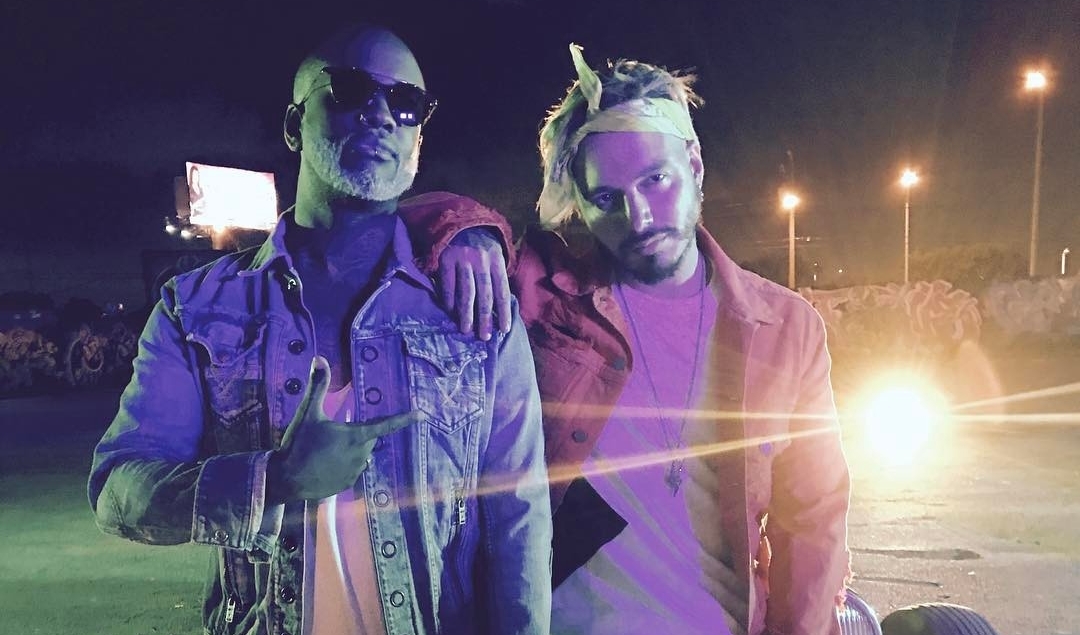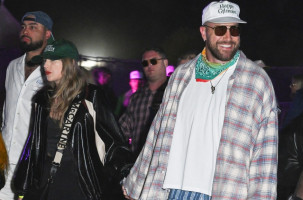Over the past three weeks, J Balvin and Willy William's "Mi Gente" has quickly become one of the world's most popular tracks, placing second on Spotify's global music chart now only to the remix of another Spanish-language hit -- Luis Fonsiand Daddy Yankee's "Despacito."
It is history-making that Spanish-language songs would sit on the chart's top two spots, but not a total coincidence. Both songs were released by Universal Music Group artists and signal that the label's long-term investment in the genre is paying off. While Jesus Lopez, chairman/CEO of Universal Music Latin America, tells Billboard that his two Latin chart-toppers are partly a function of market conditions being ripe for Latin music, he also predicts more Latin crossover hits to come as his label learns lessons on how to send Spanish-language songs mainstream.
The success of "Despacito" and its Justin Bieber-featuring remix has been well documented, since the original song's release in January through the remix's current 11-week-and-counting run atop the Billboard Hot 100 chart. While there are similarities between its dominance and the quick rise of "Mi Gente," Lopez says "Despacito" was an "exceptional success" that opened the door for Latin music globally, and "Mi Gente" was "the first to take advantage of that.
"Mi Gente" was originally a French EDM track called "Voodoo Song" by William, but when Balvin heard it earlier this year he teamed up with the producer to add some urban and reggaeton elements and turned it into a genre-blending international affair. Now the track is resonating at summer festivals and vacation destinations all across the planet.
"I think the reason why this song became huge around the world is because you can see the fusion between the EDM world and the new urban Latino world," Lopez says. "And then the other part is the door that 'Despacito' opened to create momentum for Latin music and put attention on the music."
Similar to "Despacito," there is a viral-video element to the hype around "Mi Gente." While "Mi Gente" does not yet have buzz comparable to the approximately 600,000 Instagram posts tagging "Despacito," according to Lopez, it has seen a quick boom in popularity thanks to soccer players from popular clubs such as Real Madrid and others sharing videos of themselves mimicking the video's head-nodding dance moves. Lopez says the videos are an essential element to both songs' success due in large part to the popularity of YouTube and Vimeo in the Latin markets. (While "Despacito" is on track to soon become the most-viewed YouTube video ever, "Mi Gente" has been racking up about 9 million views a day since its release.)
"In the same case as 'Despacito,' the video is crucial to develop these projects," Lopez says of the "Mi Gente" video, which was filmed in Balvin's hometown of Medellín, Columbia. "The dance part of that video, it's so colorful, the way that it represents the Latin world."
But none of the above would have made the impact they have had it not been for music streaming's effect on the global music industry. Finally, Lopez says, music consumption in Latin America can be properly tracked, which means he and the UMG team now have ammunition to use when pushing these songs on an international level.
"Fifteen years ago when you saw a Mexican act sell 1 million copies you'd say, 'Wow, that's huge,'" Lopez says. "But compare that with the 20 or 25 million that Madonna or Whitney Houston would be doing at that moment and it was nothing. But the reality is that the consumption in our territories was so big, [but] nobody could see, because 80 percent of the music that was consumed in Latin America was through piracy. It was not on the charts. It was in the market, but did not have a reflection on the charts. Now with streaming platforms, everything is real."
Since Lopez started at UMG in 2006, he says they have had four Latin worldwide hits, including Daddy Yankee's "Gasolina" in 2004 and Enrique Iglesias' "Bailando" in 2014. But because the streaming market was smaller (or, in the case of "Gasolina," nonexistent), those two didn't have the opportunity to take off with the same velocity as "Despacito" and now "Mi Gente." Today, Lopez says he can break a song in Latin markets and at the same time send those streaming numbers to a radio station in Munich to get it picked up for airplay. "Now it's immediate," he says. "All things happen at the same time."
Lopez also credits UMG for working in unison across labels and their territories, rather than waiting on a region-by-region "domino effect" as he says other labels will often do.
"The way that UMG works, we work very close between the Latino labels and the American labels...so that day one we start to make all the strategies together," he says. "I see all of the Republic team work their radio stations in the United States, and at the same time we are doing international, approaching France or the U.K. or Italy, and our team in the Latin world are doing all their strategies together. It makes a difference. It's a real multinational company; we work really close together without any problems."
As for what might be tomorrow's big Latin hit, Lopez says there are three or four artists he sees rising on the charts that he expects could hit the top 10. But ever the diplomat, the executive preferred not to name names so as not to upset the other artists on his roster.
"You never know when the No. 1 appears," he says.








